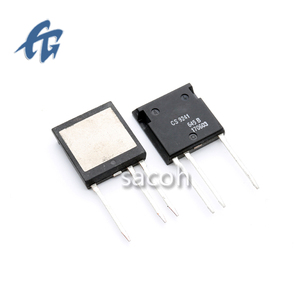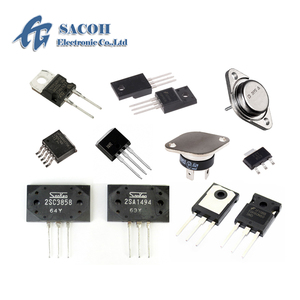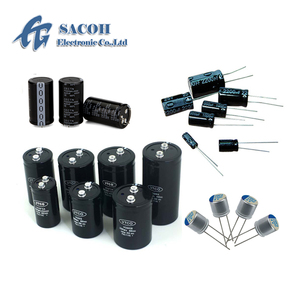Understanding Thyristors: An Essential Component
A thyristor is a semiconductor device that plays an essential role in controlling power and current in electronic circuits. Often referred to as a solid-state relay, thyristors function as a switch without moving parts, making them an ideal choice for various applications in industrial, commercial, and consumer electronics. Their ability to handle large currents and voltages efficiently contributes to their significance in power regulation and conversion processes.
Types of Thyristors: Diverse Applications for Unique Needs
Thyristors come in various types, each designed to meet specific requirements and applications:
- Standard Thyristors: Commonly used in rectifiers and power circuits, these devices are foundational in controlling AC power.
- Gate Turn-Off (GTO) Thyristors: These allow for the control of both turning ON and OFF by applying a gate pulse, adding flexibility in variable-speed drives.
- Insulated Gate Bipolar Transistors (IGBTs): A hybrid semiconductor device, IGBTs combine the attributes of both MOSFETs and thyristors, ideal for high-efficiency applications.
- Silicon Controlled Rectifiers (SCRs): Originally developed for applications in industrial electronics, SCRs have wide use in both AC and DC systems.
Function and Features of Thyristors: Power Control Redefined
Thyristors are renowned for their unique functionalities and features that make them indispensable in modern electronics:
- High Voltage and Current Handling: Able to manage substantial power loads while minimizing power loss.
- Switching Capability: Function as reliable switches in power circuits, allowing for automation without mechanical wear.
- Thermal Stability: Designed to operate under a wide range of temperatures and environmental conditions, ensuring long-lasting functionality.
- Fast Switching Speed: Allow rapid transitions between ON and OFF states, enhancing performance in applications like motor drives.
- Robustness: Built to withstand electrical stress and physical shock, making them suitable for demanding industrial environments.
Applications of Thyristors: From Industrial to Household Use
The applications of thyristors are vast and varied, reflecting their versatility in meeting electrical needs:
- Power Control Systems: Essential in managing electrical loads and distribution in industries.
- Motor Drives: Facilitate the control and regulation of synchronous and induction motors, improving energy efficiency.
- Heating Systems: Used in electric furnace applications for precise temperature control.
- AC Power Regulators: Deploy in light dimming, speed control in fans, and temperature control in heaters.
- Renewable Energy Systems: Integrate into solar inverters and wind turbine converters to optimize energy capture.




















